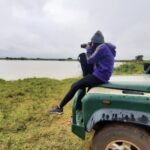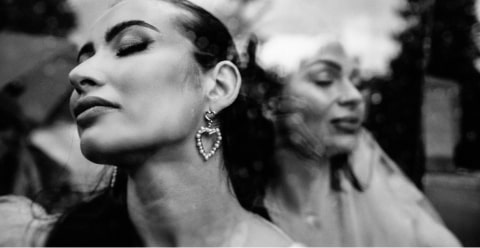Cover image by metamorworks
Photography is a deeply personal form of expression, allowing artists to convey their unique interpretation of the world through their lens. A photographer’s vision, though often a divergence from their natural perception, presents the world from their perspective, making their work unique and recognizable. This vision is integral to the creative process as it allows photographers to produce photos that are distinctive, personal, and meaningful to them.
One such photographer is Soraiya Merali of Linx Productions, an aspiring travel, documentary, and street photographer also working as an editor and producer. Her experience in the field has helped her build a strong understanding of how to harness the power of technology while preserving their individual artistic vision.
The Value of AI in Photography
In recent years, artificial intelligence (AI) has begun to play a significant role in photography, assisting artists in realizing their vision more efficiently and accurately. AI tools can automate tasks, handle the manual work, and enable photographers to focus more on the creative aspects of their craft. This approach often involves tasks like selecting or masking subjects, peeling away layers of a photo, revealing surprising details, and adjusting exposure on a granular level—processes that were incredibly time-consuming just a few years ago.
By employing AI, photographers can dedicate more time to decision-making, critical thinking, brainstorming ideas, and experimenting. This also empowers photographers to explore various versions of an edit, pushing the boundaries of what they can achieve with their photos.
The Challenges of Using AI in Photography
While the potential benefits are significant, overreliance on AI tools can also pose a significant challenge. Notably, reliance on AI can result in a lack of critical thinking and creativity. As AI tools become more diverse and sophisticated, there is an increased risk that our creative abilities may become stunted, potentially leading to broader societal implications.
There’s a valid concern: if we’re raising a generation heavily dependent on AI, could we potentially see a rise in cognitive disorders due to decreased brain activity?
Technologically, AI also demands heavy processing power. Even relatively new hardware can struggle to keep up with the intense workloads of AI tools, raising questions about the viability of our current technology.
Overcoming Challenges and Using AI Tools Effectively
The key to overcoming these challenges lies in using AI as a tool to enhance your vision, but not allowing it to control or create the vision for you. Even though AI offers tempting convenience, it is crucial to ensure that your creativity remains at the forefront.
In practice, photographers can harness the power of AI by using features within software like Lightroom to automate tasks. AI’s ability to recognize and select elements within a photo can help photographers focus on their vision, making adjustments and enhancements manually.
“I’ve actually never tried Photoshop’s autofill feature. I specifically stick to Lightroom for my editing. I fear that I might get carried away in Photoshop due to the vast possibilities it offers.”
The Intersection of AI and Ethics
Beyond the benefits and challenges, photographers using AI tools should also be mindful of ethical considerations. Data security and facial recognition technology can potentially infringe on subjects’ privacy, raising significant ethical questions. A responsible approach requires obtaining explicit permission and consent, especially when dealing with identifiable subjects.
The German artist Boris Eldgasen submitted an AI-generated image to the Sony photo competition, explicitly stating that it was AI-generated, and won. Despite refusing the prize on principle, Sony insisted he accept it, sparking a debate about the nature of photography and the role of AI in it. This debate was explored by Eldgasen and acclaimed wedding photographer Sam Hurd at Imagen’s Imagenation Summit.
The Future of AI Tools in Photography
As we look to the future, advancements in photo AI tools will likely focus on image generation. However, these developments could potentially impact photography, digital arts, and illustration in negative ways. Instead of commissioning an artist, one could use AI tools to generate images based on specific prompts, making a lot of traditional roles almost irrelevant.
The growing capabilities of AI tools also generate fear rather than hope for some artists. AI software that edits videos or control cameras may not be able to replace human creativity and intuition just yet, but it points to a future where many creative jobs might be at risk. As AI continues to evolve, the competition in creative fields is likely to increase, with only the best human creators able to secure work.
The Rise of Promptography
The general consensus in the photography community has been that AI-generated images cannot be classified as photography. By definition, photography is painting with light, which AI can’t do yet. The term “promptography” refers to a new form of art where you give a prompt to software, and it generates the image for you.
“The final images might resemble photographs, but as long as AI cannot physically operate the camera to literally create images from light, it remains a complementary tool.”
Balancing Technology and Creativity
AI has the potential to be an invaluable tool for photographers, allowing them to optimize their creative process and produce more intricate and detailed work. However, this potential must be balanced against the risk of overreliance on AI, the limitations of current technology, and the ethical implications of using advanced AI tools.
Despite these challenges, AI can still respect and enhance a photographer’s vision, provided it is used as a tool rather than a replacement for the artist’s creativity. The future of photography lies in finding this balance, embracing the benefits of AI while ensuring the artist’s unique vision remains the driving force behind their work.
____

